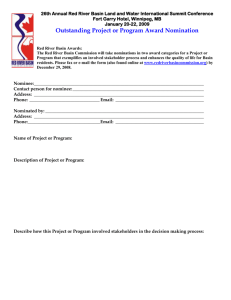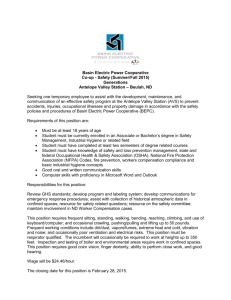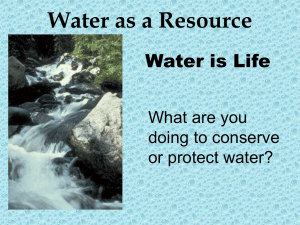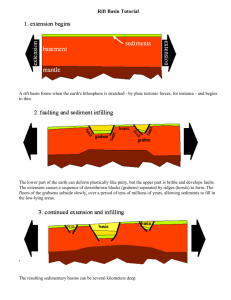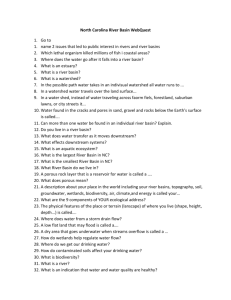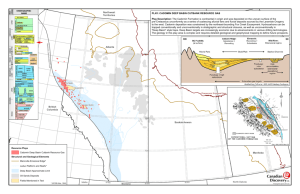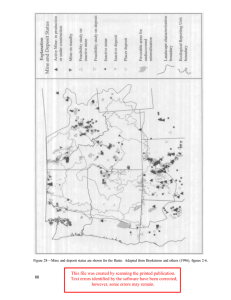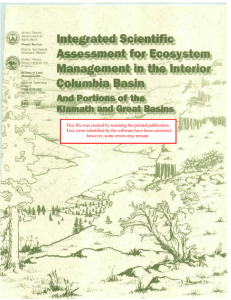The Great Basin Landscape Conservation Cooperative Todd Hopkins,
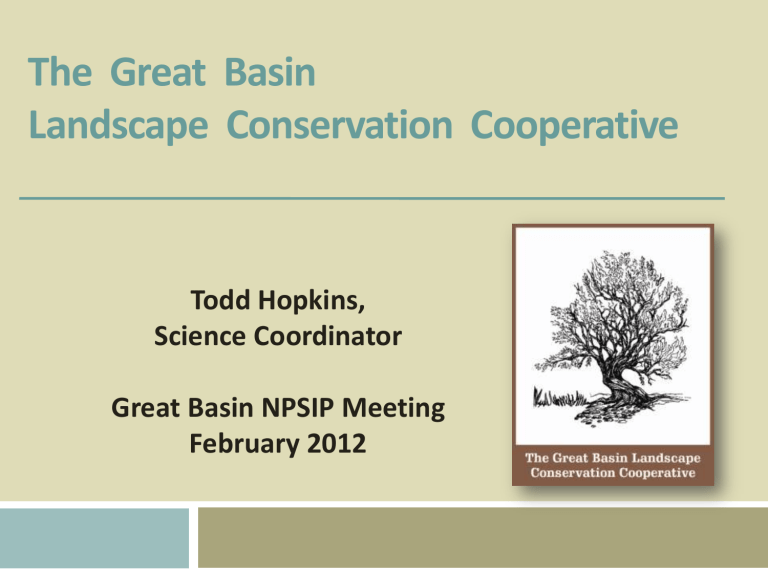
The Great Basin
Landscape Conservation Cooperative
Todd Hopkins,
Science Coordinator
Great Basin NPSIP Meeting
February 2012
• co·op·er·a·tive
• adj.
• 1. Done in cooperation with others: a cooperative effort.
• 2. Marked by willingness to cooperate.
• 3. Of, relating to, or formed as an enterprise or organization jointly owned or managed by those who use its facilities or services.
• noun.
• An enterprise or organization that is owned or managed jointly by those who use its facilities or services.
3
The Great Basin
The Great Basin is the largest area of contiguous watersheds in North America and it ’ s habitats are iconic of the
American West.
146 million acres: most of
Nevada, parts of Oregon, Idaho,
Utah, and California.
DOI Climate Science Centers
NW CSC Request for Pre-Proposals => Due March 12 th www.doi.gov/csc/northwest
6
Mission Statement
The Great Basin Landscape Conservation Cooperative enhances understanding of the effects of changing climate and other natural and human impacts across the region and promotes the coordination of science-based actions to enable human and natural communities to respond and adapt to those conditions.
Why a Landscape Approach?
7
Management Characteristics
Traditional Practice
Project Focus
Program/Functional Direction
Unit Decision Making
Unit Priorities
Program Accomplishments
Landscape Approach
Landscape Focus
Integrated Direction Across Programs
Cross-Jurisdictional Decision Making
Collaborative Partnership Priorities
Tend to Authorize Uses and Mitigate
Ecological Values
Ecological Component (individual species)
Agency Funding
Integrated Accomplishments Across programs with Partnerships
Ecological Values and Use
Authorizations Considered Equally
Ecological Function and Service
Partnership Leveraged Funding
8
Great Basin LCC Goals
Provide leadership and a framework linking science and management to address shared ecological, climate, and socio-economic issues across the basin.
Focus science and management actions to sustain natural resources in the context of changing environmental conditions.
Enhance collaboration to integrate science and management among Great Basin LCC partners particularly as related to climate change and other landscape scale change agents.
Promote communication and education .
9
2012 Priorities
Coordinate
Science and conservation of sage-dependent species
Facilitate
Information transfer of cheatgrass die-off study outcomes
Leverage
Information from the Rapid Ecoregional Assessments
Why Partnerships Fail
• Inadequate leadership
• Commitments made in haste
• Hidden Agendas, Mission Conflicts
• Unfulfilled or Unrealistic Expectations
• Poor Communication
• Imbalance of Power
11
Contact Us
Linda Kelly
Coordinator
775-861-6463 ljkelly@blm.gov
Todd Hopkins
Science Coordinator
775-861-6492
Todd_Hopkins@fws.gov
Matt Germino
Research Ecologist
208-426-3533 mgermino@usgs.gov www.greatbasinlcc.org
12
Questions?
www.greatbasinlcc.org
